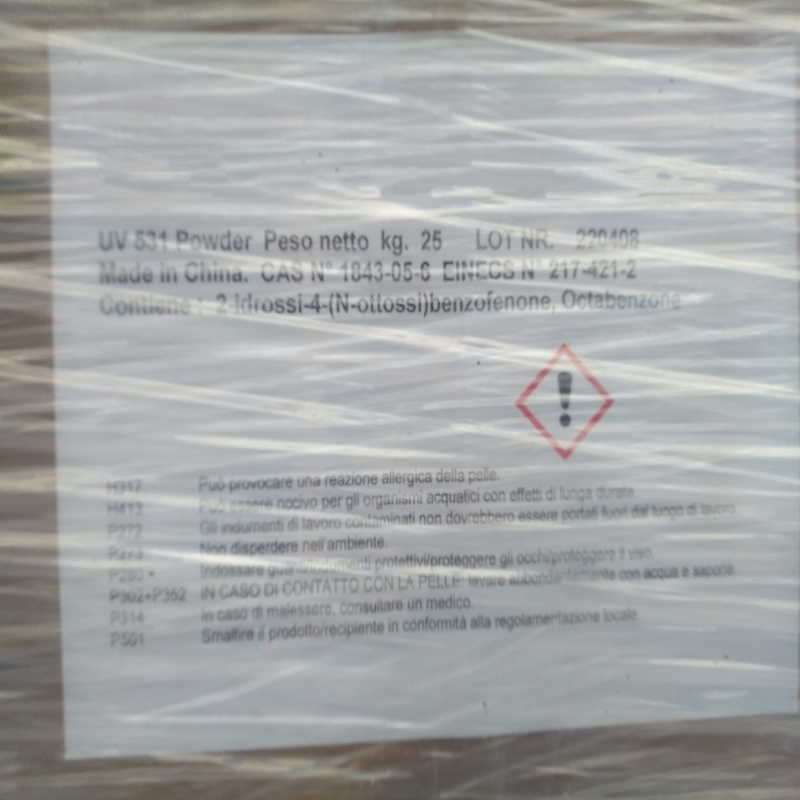-
Categories
-
Pharmaceutical Intermediates
-
Active Pharmaceutical Ingredients
-
Food Additives
- Industrial Coatings
- Agrochemicals
- Dyes and Pigments
- Surfactant
- Flavors and Fragrances
- Chemical Reagents
- Catalyst and Auxiliary
- Natural Products
- Inorganic Chemistry
-
Organic Chemistry
-
Biochemical Engineering
- Analytical Chemistry
-
Cosmetic Ingredient
- Water Treatment Chemical
-
Pharmaceutical Intermediates
Promotion
ECHEMI Mall
Wholesale
Weekly Price
Exhibition
News
-
Trade Service
According to the Q2 2019 Global Electric Mobility Financing Report, companies such as Tencent, Baidu, Amazon, Samsung, Google, IKEA, Goldman Sachs, Citi, Renault-Nissan and others have made significant investments
in electric vehicles.
Global EV sales in the first half of 2019 increased by 46% compared to the first half of 2018 to a staggering 1,134,000 units
.
Governments, local authorities, automakers, energy companies and investors have recognized that without Planet B, the push for electric vehicles and related investments are accelerating
.
Investment in e-mobility start-ups and large enterprises is expected to continue to grow and easily exceed $10 billion
by the end of 2019.
H1 EV startups raised $6.
3 billion
According to the report, investment in electric vehicle startups reached $6.
3 billion
by the end of June.
Capital injections from electric vehicle companies increased by more than 200% in the second quarter to $4.
4 billion compared to the first quarter.
Total transactions per quarter grew from 29 in the first quarter to 42 in the second quarter
.
As of the end of June, the total volume tracked by the report reached 71 transactions
.
The most popular EV industry investments are automotive OEMs (36), battery manufacturers (11), charging station OEMs (5) and EV service providers (5), with investments in EV fleet sharing solutions increasing from 0 to 3
.
NIO received its largest funding round in the second quarter with $1.
45 billion, followed by Tesla ($800 million) and Northvolt ($600 million).
Rivian came in fourth, again with $500 million
invested by Ford and Amazon.
However, Rivian finished second overall this year, raising $800 million in the first quarter of 2019
.
Now, let's take a closer look at the rationale and stories
behind some of the companies listed in this year's Q2 Electric Mobility Financing Report.
Northvolt marries Volkswagen
So far, it's been an amazing journey
for Sweden's Northvolt.
The company was founded
in 2016 by former Tesla vice presidents Peter Carlsson and Paolo Cerruti.
They dreamed of building Europe's largest lithium battery production company and persevered in fulfilling this mission
.
The company already employs more than 400 people and plans to build two large plants
.
One in Sweden and the other in Germany
.
The battery startup recently formed a joint venture with Volkswagen AG, which acquired a 20 percent stake
in June.
In addition to Volkswagen, strategic investors such as Scania, BMW and Siemens also acquired shares
.
Goldman Sachs and the IMAS Foundation (IKEA) also supported the round
from the perspective of financial investors.
Volkswagen's goals and differences
Volkswagen's case is clear, to get enough battery production capacity to meet the huge demand
in the coming years.
Volkswagen must now focus on three supply areas (China, Europe and the United States) to establish itself as
a leading electric vehicle provider by 2030.
Volkswagen's bigger goal is to sell 22 million electric cars
within 10 years.
The Wolfsburg-based company aims to sell 11 million vehicles
through its Chinese joint ventures with SAIC, FAW and JACics.
For now, however, Volkswagen relies almost entirely on Chinese battery OEMs, just like
Daimler, BMW, and some other leading brands.
Last year, Volkswagen secured 10 years of lithium supply
with Ganfeng Lithium, the world's largest lithium supplier.
By 2025, China will account for 60%
of total global EV sales.
Lithium shortages in Europe in 2025
At the same time, EV manufacturers must also get enough "power" to boost their production
in continental Europe and the United States.
If the Volkswagen Group follows its own strategy, they will already need 150 GWh of capacity
by 2025.
That's why Northvolt got in
.
Northvolt plans to start production at 16 GWh by 2023/2024 and increase this capacity to 24 GWh
.
So far, continental European investment in battery production will not be able to meet the growing demand
from 2025.
Europe may also need 5-10 companies like Northvolt to meet the needs of other European EV manufacturers such as Renault-Nissan, Peugeot, Citroën, BMW and Daimler
.
Rivian: A promising business
In the first half of the year, Rovan raised a total of $1.
2 billion
.
That's an amazing investment
for a company that aims to start producing R1T pickup trucks and R1S SUVs by 2021.
CEO RJ Scarange and his team have been working in stealth mode for the past 10 years, and since last year, they have gradually opened up their strategy
.
In addition to the great design, the company lists Amazon and Ford as major investors
.
A few months later, the e-commerce giant announced plans to operate 100,000 electric vans
produced by Rivian by 2030.
It's a departure from Deutsche Post's acquisition of StreetScooter in 2014 and its claim to electrify its 70,000 delivery vans
.
So far, Deutsche Post/DHL has produced 10,000 StreetScooters, which is on track
.
The story continues
since Chery, one of China's largest automakers, invested $551 million in StreetScooter's Chinese joint venture.
According to the Q2 2019 Global Electric Mobility Financing Report, companies such as Tencent, Baidu, Amazon, Samsung, Google, IKEA, Goldman Sachs, Citi, Renault-Nissan and others have made significant investments
in electric vehicles.
Global EV sales in the first half of 2019 increased by 46% compared to the first half of 2018 to a staggering 1,134,000 units
.
Governments, local authorities, automakers, energy companies and investors have recognized that without Planet B, the push for electric vehicles and related investments are accelerating
.
Investment in e-mobility start-ups and large enterprises is expected to continue to grow and easily exceed $10 billion
by the end of 2019.
H1 EV startups raised $63.
<> billion
<> billion
According to the report, investment in electric vehicle startups reached $6.
3 billion
by the end of June.
Capital injections from electric vehicle companies increased by more than 200% in the second quarter to $4.
4 billion compared to the first quarter.
Total transactions per quarter grew from 29 in the first quarter to 42 in the second quarter
.
As of the end of June, the total volume tracked by the report reached 71 transactions
.
The most popular EV industry investments are automotive OEMs (36), battery manufacturers (11), charging station OEMs (5) and EV service providers (5), with investments in EV fleet sharing solutions increasing from 0 to 3
.
NIO received its largest funding round in the second quarter with $1.
45 billion, followed by Tesla ($800 million) and Northvolt ($600 million).
Rivian came in fourth, again with $500 million
invested by Ford and Amazon.
However, Rivian finished second overall this year, raising $800 million in the first quarter of 2019
.
Now, let's take a closer look at the rationale and stories
behind some of the companies listed in this year's Q2 Electric Mobility Financing Report.
Northvolt marries Volkswagen
Northvolt marries VolkswagenSo far, it's been an amazing journey
for Sweden's Northvolt.
The company was founded
in 2016 by former Tesla vice presidents Peter Carlsson and Paolo Cerruti.
They dreamed of building Europe's largest lithium battery production company and persevered in fulfilling this mission
.
The company already employs more than 400 people and plans to build two large plants
.
One in Sweden and the other in Germany
.
The battery startup recently formed a joint venture with Volkswagen AG, which acquired a 20 percent stake
in June.
In addition to Volkswagen, strategic investors such as Scania, BMW and Siemens also acquired shares
.
Goldman Sachs and the IMAS Foundation (IKEA) also supported the round
from the perspective of financial investors.
Volkswagen's goals and differences
Volkswagen's goals and differencesVolkswagen's case is clear, to get enough battery production capacity to meet the huge demand
in the coming years.
Volkswagen must now focus on three supply areas (China, Europe and the United States) to establish itself as
a leading electric vehicle provider by 2030.
Volkswagen's bigger goal is to sell 22 million electric cars
within 10 years.
The Wolfsburg-based company aims to sell 11 million vehicles
through its Chinese joint ventures with SAIC, FAW and JACics.
For now, however, Volkswagen relies almost entirely on Chinese battery OEMs, just like
Daimler, BMW, and some other leading brands.
Last year, Volkswagen secured 10 years of lithium supply
with Ganfeng Lithium, the world's largest lithium supplier.
By 2025, China will account for 60%
of total global EV sales.
Lithium shortages in Europe in 2025
Lithium shortages in Europe in 2025At the same time, EV manufacturers must also get enough "power" to boost their production
in continental Europe and the United States.
If the Volkswagen Group follows its own strategy, they will already need 150 GWh of capacity
by 2025.
That's why Northvolt got in
.
Northvolt plans to start production at 16 GWh by 2023/2024 and increase this capacity to 24 GWh
.
So far, continental European investment in battery production will not be able to meet the growing demand
from 2025.
Europe may also need 5-10 companies like Northvolt to meet the needs of other European EV manufacturers such as Renault-Nissan, Peugeot, Citroën, BMW and Daimler
.
Rivian: A promising business
Rivian: A promising businessIn the first half of the year, Rovan raised a total of $1.
2 billion
.
That's an amazing investment
for a company that aims to start producing R1T pickup trucks and R1S SUVs by 2021.
CEO RJ Scarange and his team have been working in stealth mode for the past 10 years, and since last year, they have gradually opened up their strategy
.
In addition to the great design, the company lists Amazon and Ford as major investors
.
A few months later, the e-commerce giant announced plans to operate 100,000 electric vans
produced by Rivian by 2030.
It's a departure from Deutsche Post's acquisition of StreetScooter in 2014 and its claim to electrify its 70,000 delivery vans
.
So far, Deutsche Post/DHL has produced 10,000 StreetScooters, which is on track
.
The story continues
since Chery, one of China's largest automakers, invested $551 million in StreetScooter's Chinese joint venture.







